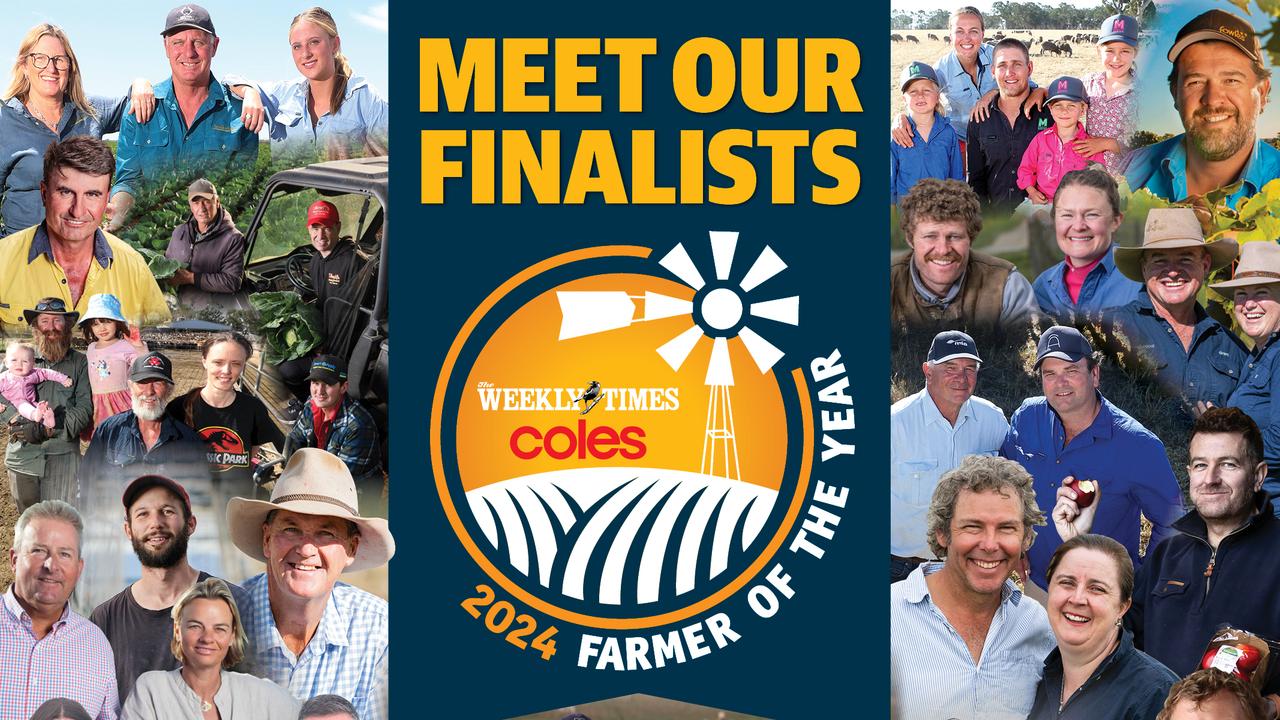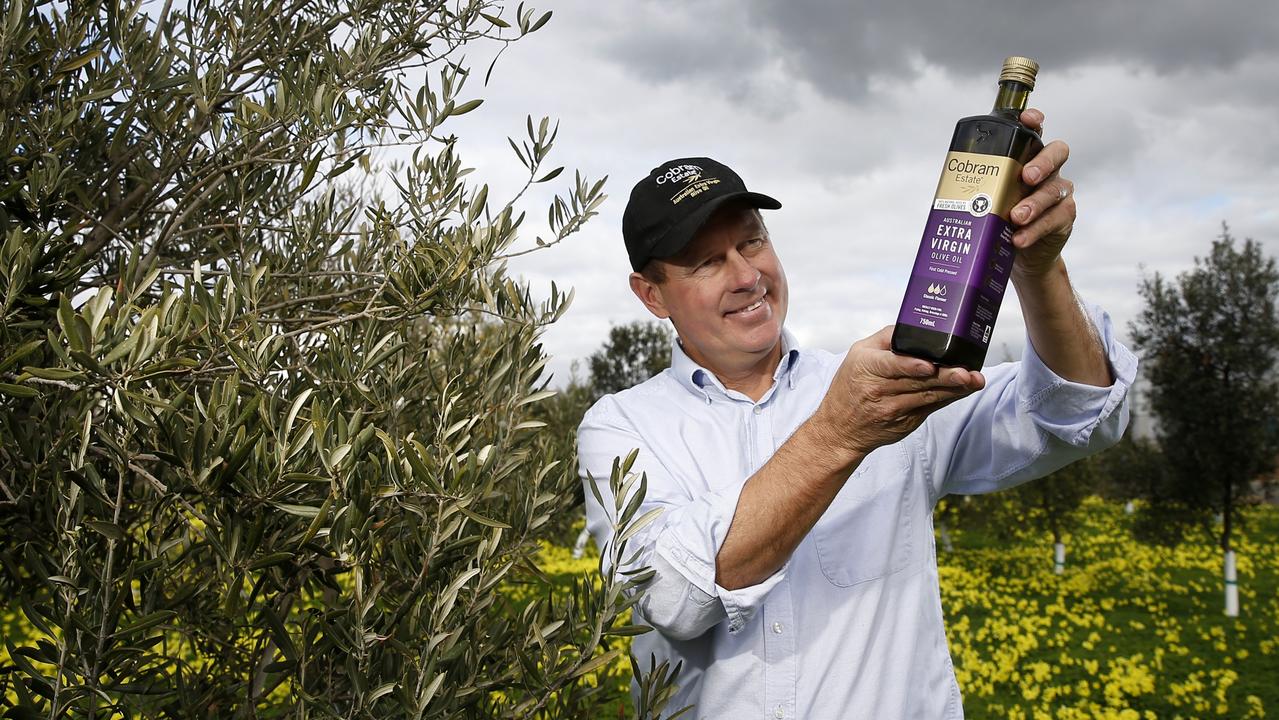Perfecting logistics the key to success for this mango business
With more than 100,000 mango trees spread throughout northern Australia, ensuring every cog in the wheel is working together is the secret to success for Marie Piccone.
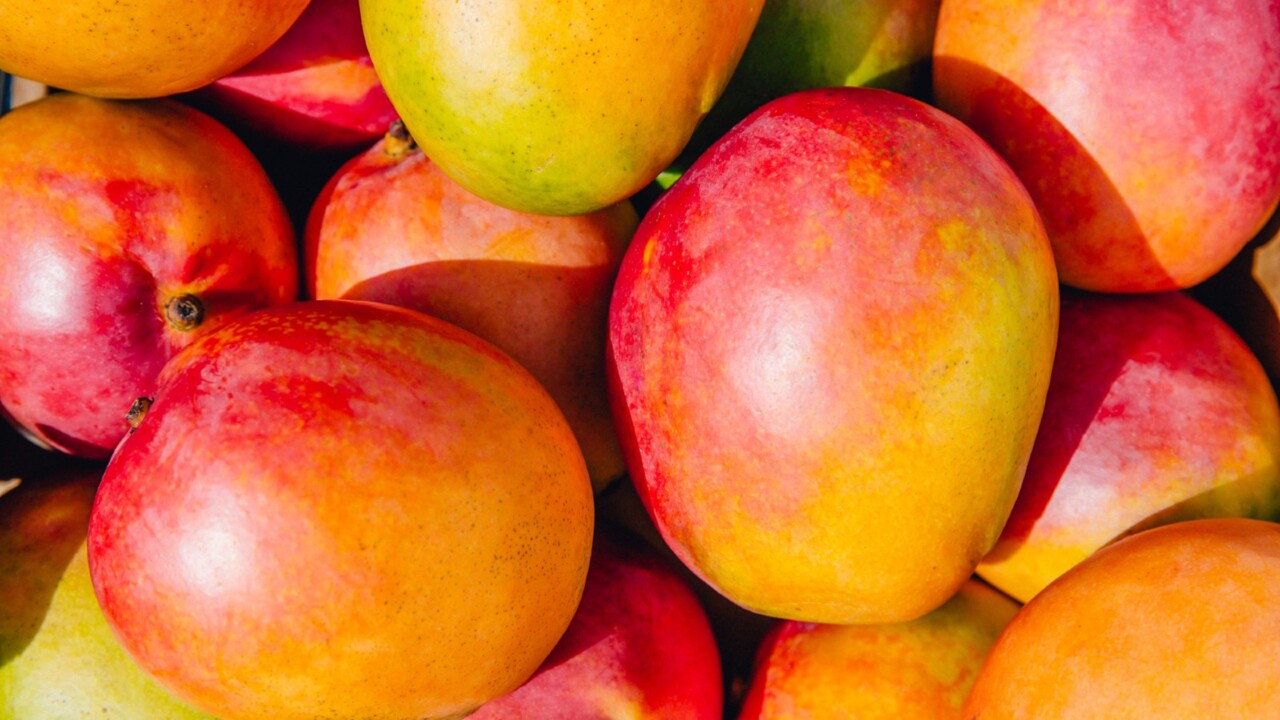
Mango grower Marie Piccone is often puzzled when one question is asked of her family’s massive horticultural operation which spans seven farms and two states.
The question – what do you do when you are not picking mangoes – reflects a lack of understanding, Marie believes, of what makes Manbulloo Ltd the success it is.
With more than 100,000 trees spread across three geographical areas in northern Australia, a big workforce that includes 30 full time staff and up to 180 more during picking season, and fruit going to most states in Australia and for export, every cog in the big wheel must work together to drive success.
That, Marie said, is what keeps her and the Manbulloo business, busy when fruit is not being picked.
Picking is hectic and a lack of preparation can have huge flow on effects, so that preparation which includes everything from machine maintenance to box ordering, ensure that nothing takes away from the quality the Manbulloo brand is known for.
And it has allowed the operation to become the biggest growers of Kensington Pride and one of the largest R2E2 variety mango growers in Australia.
Manbulloo Ltd was established by Marie in 2005, when she bought three existing mango properties which needed work.
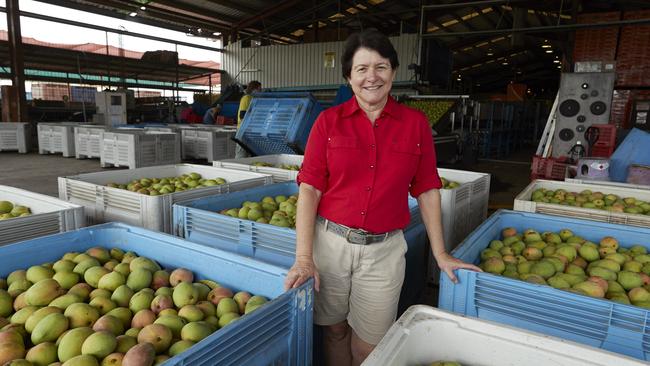
MATCHED SKILLS
With an agricultural science background, a stint working with the Queensland Department of Primary Industries, and 17 years as a consultant, Marie saw the chance to use her skills to make the mango properties successful.
She was not deterred by the condition of the farms “because it was the one reason we could afford to buy them”.
Marie and the Manbulloo team then set to work, on the properties in Queensland near Townsville, as well as the Northern Territory operation near Katherine, to bring them up to scratch.
“The five-year goal was to bring the production, quality and efficiency back – rejuvenating the Manbulloo brand was ultra important,” Marie said.
“Originally, we ‘took on’ all three farms because I wanted to be able to be a reliable supplier of mangoes over a longer period, which is provided by the different geographical areas where the farms are.
“Not being a six-week wonder or supplying for a short time meant I got a seat at the table to supply retailers and export customers including negotiating relationships and prices as I could supply fruit over a longer period.”
Picking starts first in the Northern Territory, on the first of two farms there, with the second starting about two weeks later.
The main farm at Katherine is Manbulloo’s oldest and biggest farm with 65,000 trees spread across four square kilometres, while the second farm at Katherine, across the Katherine River, has 28,000 trees.
WILLING WORKFORCE
Then the Manbulloo team including the pickers, many of whom are sourced through the Pacific Islander Labour Mobility Scheme and come back year after year, are moved to Townsville and eventually, to the final farms on the Atherton Tablelands.
Picking starts in mid-September and runs through until mid March, and pickers are trained, supervised or retrained each year to ensure strict quality parameters are met in terms of maturity and fruit quality.
A harvest manager and the farm managers oversee the big harvest team and the 41 picking machines which must be moved from property to property as harvest progresses.
The timing of picking is not determined by sugar content in the mangoes but the dry matter and the appearance of the mangoes.
Once picked, the fruit is split into three grades – premium, bulk and processing – with the goal to get as much into the premium grade as possible.
“A good benchmark is to have a packout of 70-80 per cent going into the premium grade,” Marie said.
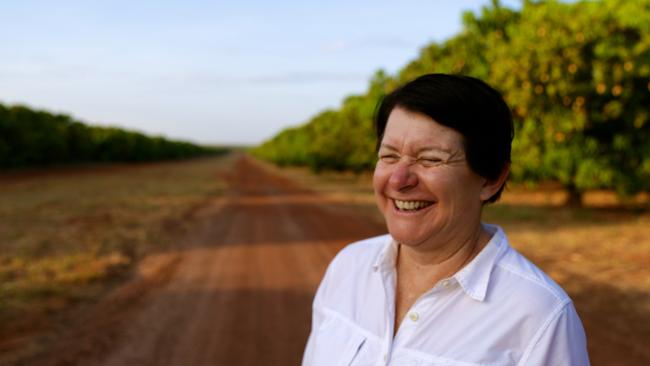
“Sometimes we achieve more than 80 per cent pack out but the weather has to be on your side, and seasonal conditions have an impact in terms of packout rates and yield.
“Each of the regions we farm are capable of great things.”
Despite being in the tropics, all trees are watered year-round – as required. Soil moisture monitors are used, but it’s also the skill of the farm managers and the technical team that determines when trees need a top up in the soil profile in a fine balancing act of enough but not too much water.
Yields are important alongside quality, and Marie said the two were not mutually exclusive.
Quality could be lost, however, in how the mangoes are graded, packed, cooled and transported, and it’s here that meticulous supply chain management plays a huge role.
The time frame is tight – mangoes are picked from the tree, packed, cooled to 13C, transported, ripened at 18-20C and then are ideally on the shelves within about 14 days. Sometimes, it can be as quick as eight days but is usually not longer than 18 days.
Fruit is picked mature and hard green, transported “asleep” at cold temperature and then ripened for four to eight days. This process is carried out by service providers in major capital cities like Perth, Adelaide, Sydney, Melbourne and Brisbane, who Marie said share the Manbulloo goals of flavour and quality.
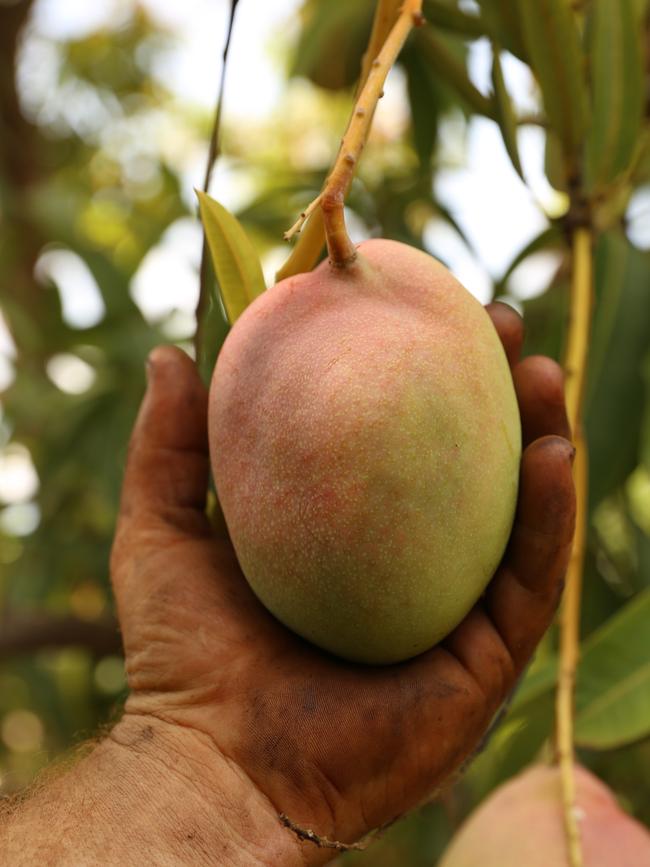
LOGISTICAL CHALLENGE
Perhaps the biggest challenges in terms of logistics come from the Northern Territory operation, and transporting fruit can cause problems. The isolation and distance from major cities means it is difficult to get things like parts in a timely manner, as well as finding the right staff who love these environments and the challenges the location presents.
And whether they are grown in the NT or Queensland, all mangoes go on a long journey from tree to shelf, and Marie, the supply chain and ripening teams ensure there is nowhere along the journey where quality can be compromised.
Most of the production hits the domestic market, while less than 10 per cent of the mangoes from the premium class go to export to countries like Singapore, the United States, Canada, New Zealand and Korea.
“The export volume is related to growing demand at a price point, as well as the challenging logistics to deliver in a timely manner, mainly since the Covid years,” Marie said.
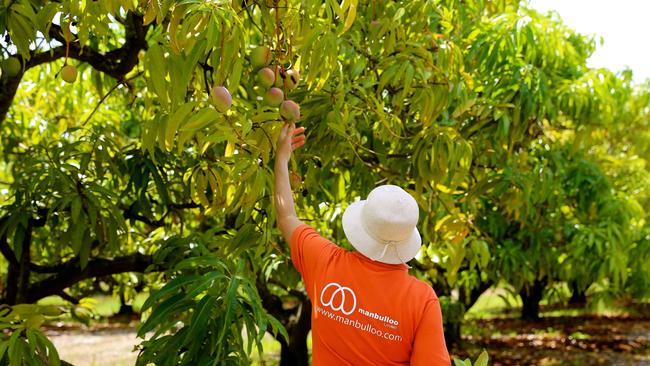
Bulk fruit is sold to a range of customers including fruit shops and big retailers like the NSW-based Harris Farms. The processing grade fruit makes mango nectar and is used in products like ice cream.
While the complex logistics are a challenge, and have many, many moving parts, they underpin a burning desire by Marie and the Manbulloo team to make sure that all fruit sold under the Manbulloo brand are the highest quality and flavour profile possible.
“We have a brand reputation, and we commit to flavour and quality across a range of specifications,” she said.
“We always aim to sell fruit with integrity.
“The focus is on flavour, a great eating experience and good shelf life and it is totally vital that our mangoes live up to the promise of the Manbulloo brand.”



